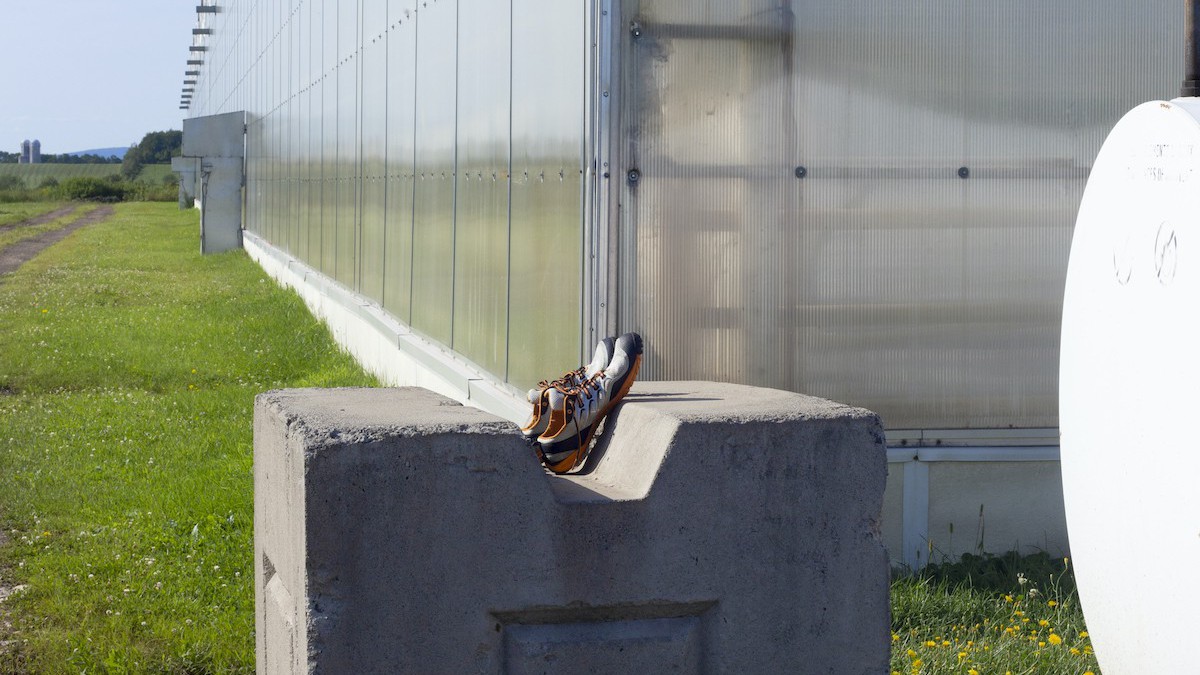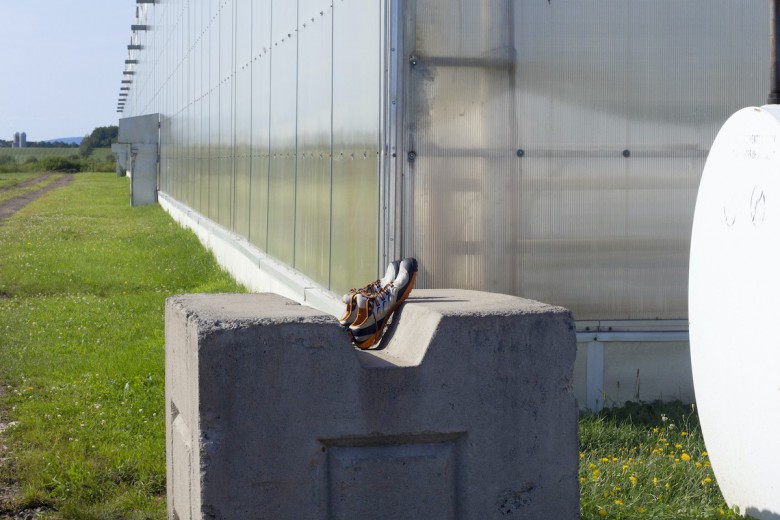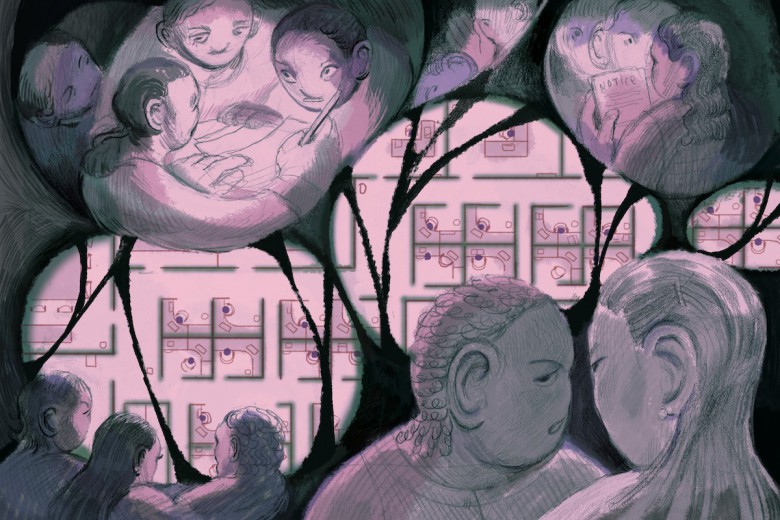Lisez cet article en français.
Vanesa Ortiz broke into a cold sweat when a white man with a handgun started toward her.
She’d woken up at 5:45 that morning and left her house in a town outside of Calgary when it was still dark. A high-school Spanish teacher, she had taken the day off to drive women agricultural workers to their vaccine appointments, scheduled at 10 a.m.
Seven months pregnant, Ortiz was one week away from taking maternity leave. Her back and feet were killing her as she got into the car. It was an SUV she and her husband had bought to replace their smaller car – a decision they made to help in their work with a migrant rights advocacy group called Association of Mexicans in Calgary (AMexCal).
Ortiz and her husband know rural Alberta isn’t always safe for a brown woman alone, and she’d promised him that she wouldn’t go by herself. He wasn’t able to take a day off from his nine-to-five job in finance to accompany her, but a white social worker sympathetic to their cause was waiting at the workers’ lodgings for her.
The workers lived in a town on the other side of the city. She kept to the freeway and avoided morning traffic. When she got to a big red country-style house set far back from the road, she parked just beyond the driveway and reached for her phone to confirm the location.
When a white man with a handgun tucked into his waistband began walking toward her, she made a hand gesture to signal “never mind!” and drove about 200 yards down the road, where the social worker was waiting for her in front of the small white workers’ house. It was hidden at the very end of a narrow, winding driveway, far from the road. Her heart pounded as she saw the man following her.
“Why am I here?” she asked herself. “Why am I putting my baby in danger?”
She fought the urge to call her husband, hesitant to worry him. She thought of the workers, some sleeping four to a room and some in a converted garage. She thought of the 45-minute argument she’d had with their boss to convince him of their right to be vaccinated and of his accusations that she was imposing a pro-vaccine agenda.
“I’m here because these women deserve health care,” she concluded. She pulled into the neighbouring driveway. When she saw the white social worker outside, she knew she was safe as the man pulled out his phone. She was relieved that the boss knew she was coming; if he hadn’t, she wasn’t sure what would have happened.
When the women came outside, they didn’t seem surprised by the presence of the man or his gun.
The women work in a greenhouse producing flowers. They’re in Canada through the Seasonal Agricultural Worker Program (SAWP), which “allows employers to hire temporary foreign workers (TFW) when Canadians and permanent residents are not available.”
They’re not an anomaly. In 2020, over 80,000 people came to Canada on closed temporary work permits. Of them, around a third came from Mexico. The vast majority of them went to work in Ontario, Quebec, B.C., and Alberta. Employers typically provide workers with a place to live close to their business.
In other words, the women’s work permits, housing, and immigration status are all tied to their boss. Five workers were originally going to get vaccinated. Only two accompanied Ortiz after their boss told them they didn’t need the vaccine.
“He’s always watching us,” they told Ortiz of the man with the gun. He is a neighbour who acts as an unpaid surveillance agent, patrolling the edge of the property with his gun, calling their boss whenever one of them leaves the house.
Racist violence is just one barrier to organizing rural migrant workers.
The first is finding them.

—
Getting in touch with migrant workers takes an enormous amount of time.
While some grassroots migrant rights groups manage to pay a few staff, the vast majority of their organizers are unpaid volunteers with day jobs who help immigrant workers in their time off.
Some organizers wait outside rural superstores, lingering in the aisles with Latinx foods, and waiting for an opportunity to strike up conversations with migrant workers buying ingredients that remind them of home. Speaking in Spanish, organizers offer help with bureaucratic paperwork often not available in the workers’ mother tongue.
Some spend time by Western Union branches in strip malls, hoping to chance upon workers sending money home to their families.
They spend their spare time driving into rural areas, on the lookout for small farms in places that often don’t even have a pharmacy.
Some visit farms where you can pick your own strawberries in order to strike up a conversation with migrant workers in the adjacent fields.
Organizers describe the aching needs that workers express once they introduce themselves. The questions come like a flood: How can I bring my family over? How can I access permanent residency? How do I deal with workplace harassment?
The physical isolation exacerbates the next barrier to organizing: employer control.
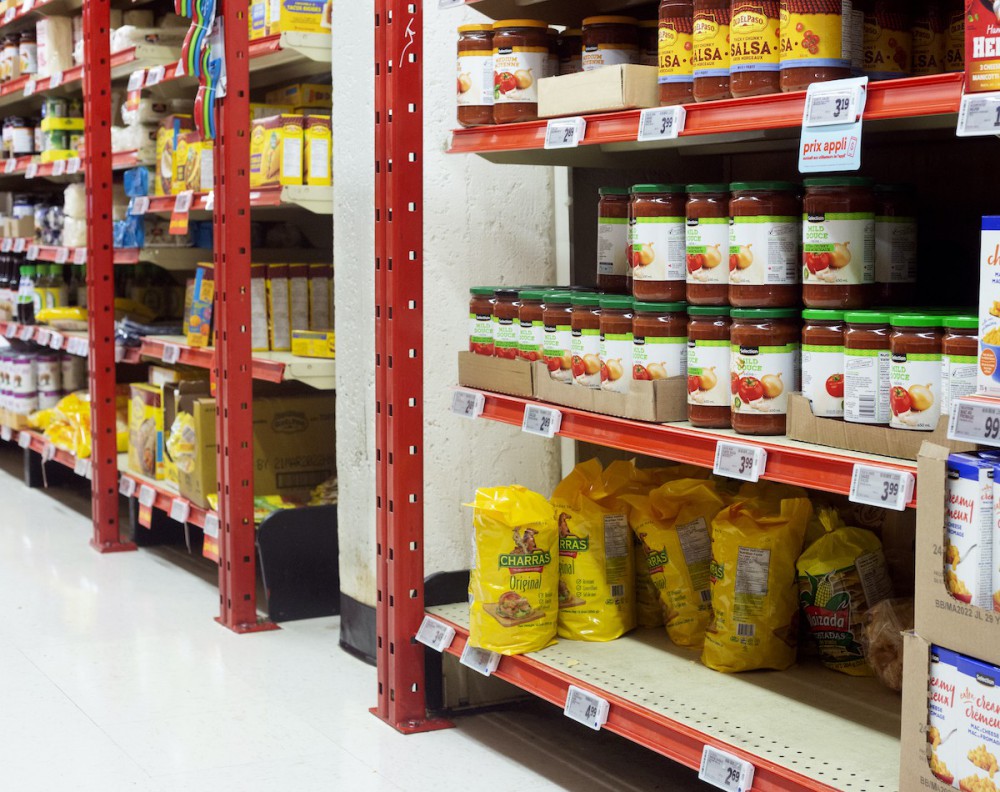
—
“It’s a regime of terror.”
Elizabeth Muñoz works three days a week in the hygiene and cleanliness department of a Chicoutimi hospital to pay her bills and spends the rest of her time volunteering with the Saguenay branch of the Immigrant Workers Centre (IWC). The former orphanage director, who studied sociology in Mexico with a specialty in community development, has worked with migrant workers since 2013.
“The first problem is really, really the isolation,” she explains. “It’s imperative to understand the magnitude of this word.”
In Saguenay, Quebec, migrant workers live in isolated rural areas. They travel to the farm from the airport and leave only to shop for groceries once a week when the employer permits. Muñoz explains that workers experience a double isolation: “isolated and shut up in the farms and isolated in their heads.”
The pandemic tightened employers’ hold over their migrant workforce, serving as what Muñoz calls an “argument of terror” for employers to forbid their workers from going out in their spare time.
“They can’t even manage their free time on their day off,” she says. “This heightened surveillance allows the boss to micromanage each worker’s life 100 per cent.”
Muñoz recounts that one worker she knows missed her bus back to the farm from the shopping mall in town and called her, afraid of being fired. The employer was incensed when she didn’t come back with her colleagues and after driving her back to the farm, he threatened to send her back to Mexico.
“They hear it 10 times a day. Working in the greenhouse, ‘If you don’t harvest the cucumbers right you’ll be deported back to your country,’” Muñoz recounts. “The bosses think that workers belong to him, that they’re his property.”
—
Despite the hardships, organizers have some hard-won wins.
A Tunisian worker Muñoz helped, though initially hired to do carpentry, was illegally put to work on heavy machinery and injured his back. While the injury got worse and worse, his employer told him to tell the doctor that everything was fine.
After following his employer’s instructions, the doctor consolidated his file with the provincial labour bureau, the CNESST (Commission des normes, de l’équité, de la santé et de la sécurité du travail). Consolidation is a technical term the CNESST uses to refer to the “Healing or stabilization of an employment injury […] after which no improvement in the worker’s health is foreseeable.”
When he got back to work, HR told him his plane ticket was booked for Friday. Muñoz found a lawyer and succeeded in securing for the worker the necessary health care and staying his deportation.
Workers injured on the job are practically “thrown in the garbage,” Muñoz says.
In another case, Muñoz used popular education to arm workers with the tools they needed to stand up for their rights.
A group of Guatemalan workers in a tomato greenhouse was being psychologically harassed by a colleague the boss had designated to enact surveillance at home. On multiple occasions, the colleague cut the heat in the night and the hot water while people were bathing.
Muñoz met with the group in person and gave workshops on provincial and federal employment standards, with a focus on harassment.
Finally, the group named one leader to confront the employer, armed with their newfound knowledge and all the workers behind them.
The boss immediately put an end to the surveillance system and his attitude toward the group changed dramatically.
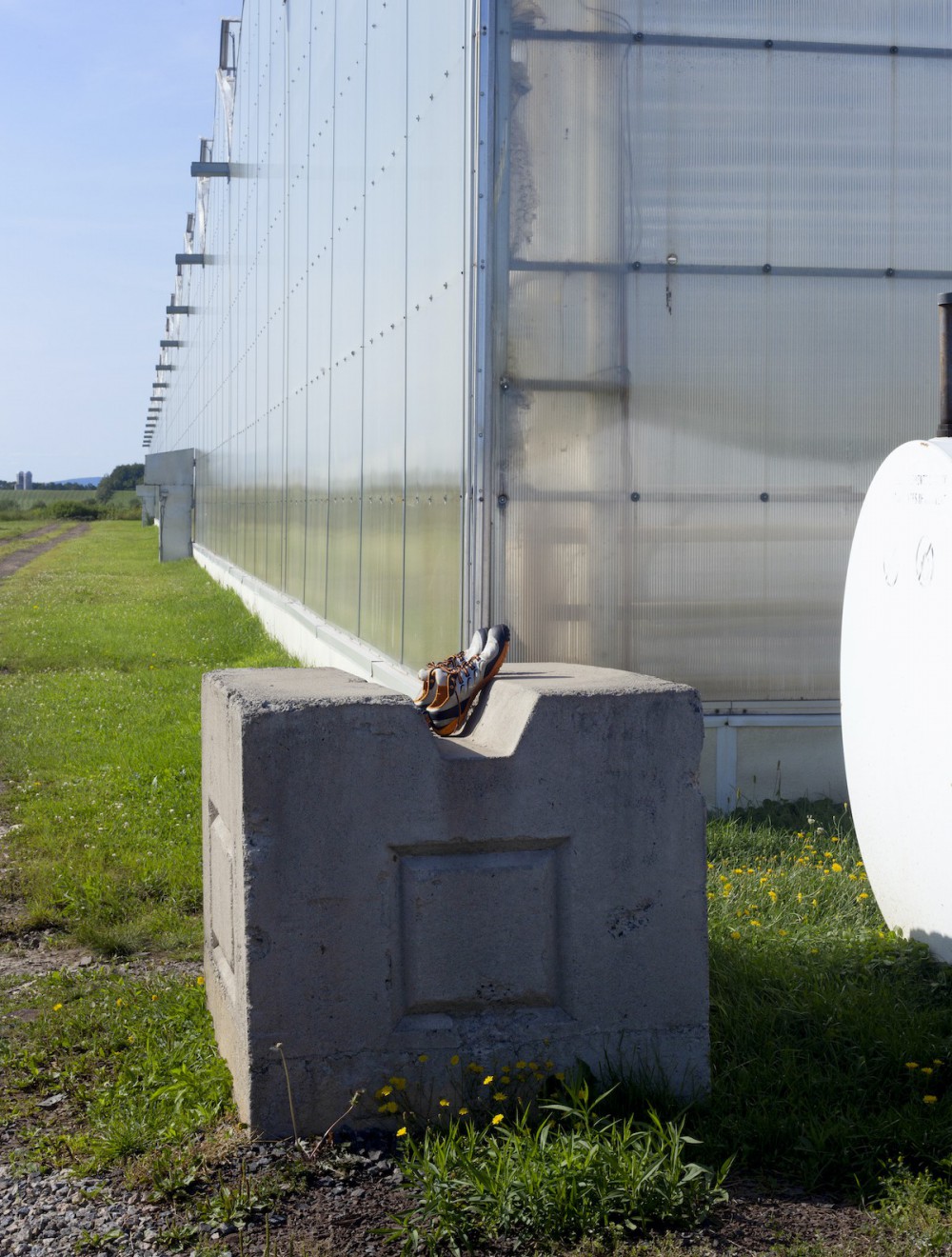
—
At a blueberry farm where the Fraser River meets the mountains, just outside of Greater Vancouver, a trio of vehicles adorned with balloons came bearing an unexpected 2021 Father’s Day gift.
A gaggle of musicians bearing an accordion, bass, guitar, clarinet, and conga drums spilled out of a van. Another vehicle carried a group containing a mariachi singer and a charismatic activist in a red Canada Day cowboy hat with a hummingbird sticker covering the flag. The activist would enthusiastically raffle off small donated prizes of water bottles and baseball caps.
From the last vehicle still more organizers emerged, setting to work distributing goodie bags with candies, raffle tickets, and a flyer with their contact information. One banner read “Happy Father’s Day,” another, “Migrants United, The Bosses Are Defeated.”
“We rolled up in a festive caravan,” recalls Gil Aguilar, founder and activist with the B.C.-based migrant rights group Fuerza Migrante.
In pre-pandemic times, the group had organized a Father’s Day party at their office and invited workers from farms all over the region to come enjoy food and music. They called it the #diadelpadremigrante, or Migrant Parent’s Day. Many immigrant workers go months without seeing their children while working in Canada, but being a parent is still an important part of who they are.
“We decided if the workers can’t come [due to the pandemic], we’ll bring the party to the workers.”
In 2020, they spent one weekend driving from farm to farm with a karaoke machine and mariachi singers. In 2021, the group upped the ante, adding a live band to the mix and spending two weekends roaming the area around Vancouver to reach as many farms as possible.
While the area is beautiful, workers “don’t really get to enjoy it,” says Aguilar. “Most of what they see is the farm, the grocery store, the farm, the grocery store, the airport.”
While the lush greenery and majestic mountain ranges distinguish farms in B.C. from those in other parts of the country, the migrants growing Canada’s food have the same relationship with their bosses regardless of scenery.
“Their employer is not just their employer,” Aguilar says. “He’s also the landlord, and he’s also in control of their immigration, and he’s also in control of their spare time because the employers have all these rules that the workers cannot smoke and cannot drink and cannot have visitors. They’re under a lot of control.”
“It’s a pretty terrible situation to be in.”
While the Father’s Day caravan had a nearly unanimously positive response, with workers taking out their phones to record videos and coming up to organizers to express their thanks and appreciation that the group had remembered them, in some situations festivities came to an abrupt halt.
A few times, bosses heard the music and began to question their employees.
“It killed the vibe as soon as they showed up. They got afraid,” Aguilar recounts.
Afterward, WhatsApp messages from workers whom organizers hadn’t met before rolled in, thanking them for the show. But the primary motivation for the Father’s Day tour wasn’t to meet new workers.
“For us that’s the best reward, when workers feel like we’re not just there because of [all the bad things],” Aguilar explains. “We don’t wanna see them just as workers and relate to them in the sense of, ‘your rights are being abused, fight back,’ but rather, ‘you are complex people who also have other things in your life besides working.’”
Workers face many barriers to fighting for their rights: they run the risk of losing their wages, immigration status, and housing. The closed work permits that bind them to one employer make their employment precarious.
Organizers remain undaunted.
“So much press focuses on the bad things, on the powerlessness,” Aguilar says. “But it wouldn’t work if we didn’t think things couldn’t improve, if there weren’t things that give us hope.”


